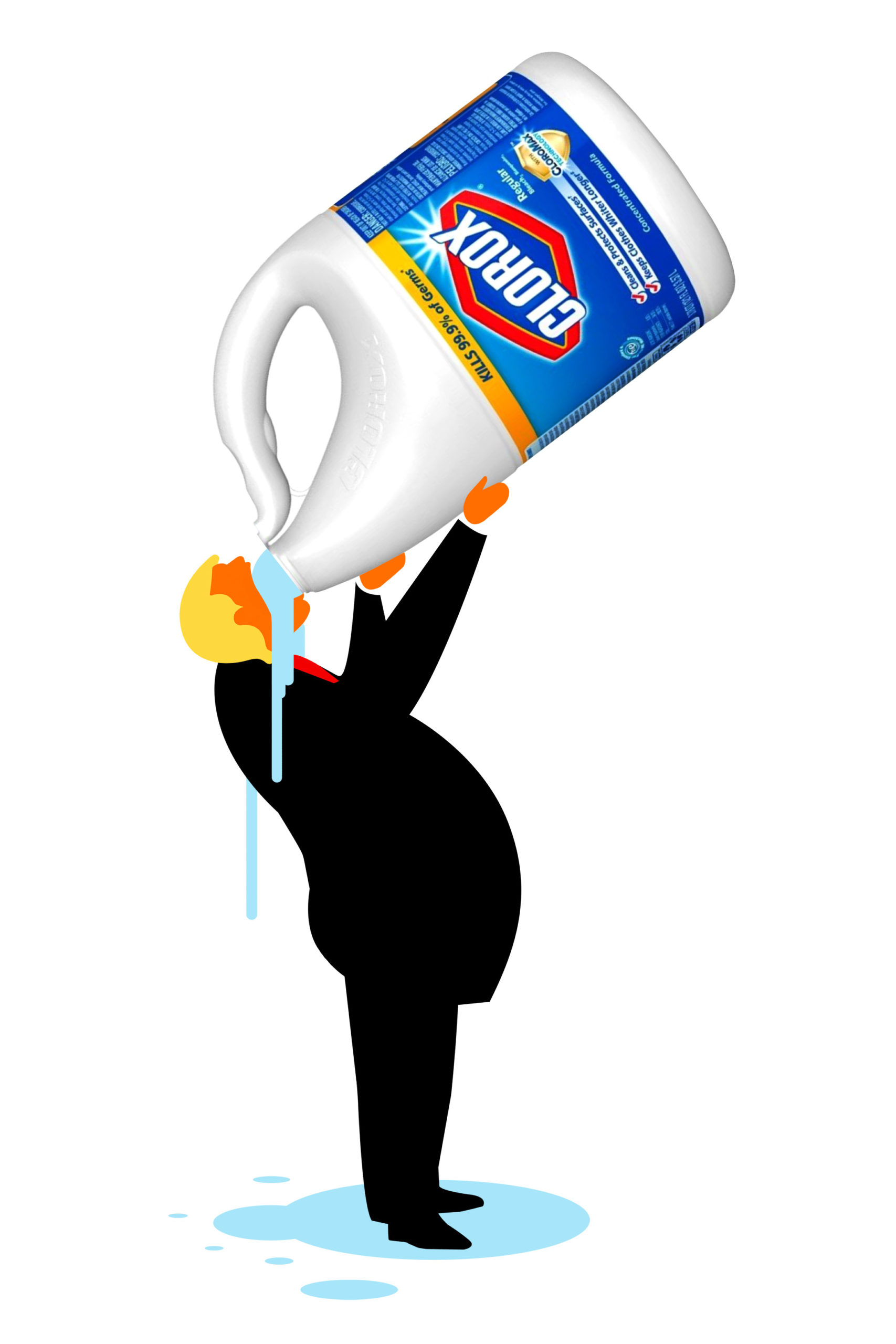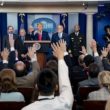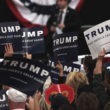The president’s early indifference and his administration’s slow-motion response to the emerging threat of Covid-19 are well-documented, as are his now-famous remarks at the World Economic Forum that it was “just one person coming in from China” and how he had the virus “totally under control.” In recent weeks, as the nation’s horrific death toll and the public’s estimation of his management of the crisis have surged in opposite directions, the president has suggested things would have been worse had he not done such “a good job.”
In a bizarre coda to his floundering—and lethal—performance, the president is now wearing the hat of medical expert. Repeatedly he has used his daily pressers to promote the use of hydroxychloroquine and azithromycin as treatments for virus-infected patients. With minimal evidence and no significant testing, Trump described the drugs in a tweet as having a “real chance to be one of the biggest game changers in the history of medicine.”
Demand for the drugs soared, and the manufacturer announced it would be ramping up production. Just as quickly, the National Institute of Allergy and Infectious Diseases strongly recommended against using the drugs because they have been associated with arrhythmia and the increased risk of sudden cardiac death.
As a measure of the surrealism of the Trump era, speculation quickly arose that the president may be profiting financially from expanded use of the two drugs. At the same time, a study conducted of patients in the VA health system suggested that use of hydroxychloroquine to treat Covid-19 cases resulted in significantly elevated mortality rates. The American Heart Association, American College of Cardiology, and Heart Rhythm Society promptly warned health care providers to use caution when considering hydroxychloroquine and azithromycin to treat Covid-19 if the patient has cardiovascular disease.
Undaunted, Trump embarked on a new tack, promoting the ingestion of disinfectants as an effective prophylactic treatment against the disease. This latest presidential pronouncement generated a flood of calls to hotlines around the country and a run on Lysol and Clorox in the supermarkets.
According to The New York Times, the Maryland Emergency Management Agency had to issue a warning that “under no circumstances” should any disinfectant be taken to treat the coronavirus. The Times also reported that officials in Washington State urged people not to consume laundry detergent capsules. Dr. Diane P. Calello, the medical director of the New Jersey Poison Information and Education System, stipulated that injecting bleach or highly concentrated rubbing alcohol “causes massive organ damage and the blood cells in the body to basically burst. It can definitely be a fatal event.”
Walter Shaub, the former director of the Office of Government Ethics, was quoted in The Guardian: “It is incomprehensible to me that a moron like this holds the highest office in the land and that there exist people stupid enough to think this is OK. I can’t believe that in 2020 I have to caution anyone listening to the president that injecting disinfectant could kill you.”
The Guardian reported that Harvard’s toxicology Twitter account felt a similar need to issue medical advice online following Trump’s statement, giving a scientific reason for why you shouldn’t swallow bleach. “Please don’t inject bleach or drink disinfectant. Bleach injections cause hemolysis (where your red blood cells that carry OXYGEN break apart) and cause liver damage, and many disinfectants can cause dangerous burns or bleeding in your stomach.”
To this growing inventory of Trump’s medical prescriptions, The Atlantic’s Peter Wehner reminds us that the president’s pièce de résistance came during a late April coronavirus task-force briefing, when he floated using “just very powerful light” inside the body as a potential treatment for the virus.
Wehner summarizes the long-term implications of Trump’s conduct during the months of virus-induced crisis: “What this means is that Americans are facing not just a conventional presidential election in 2020 but also, and most important, a referendum on reality and epistemology. Donald Trump is asking us to enter even further into his house of mirrors. He is asking us to live within a lie, to live within his lie, for four more years.”
Hamilton Fish is editor of The Washington Spectator.







I already receive The Washington Spectator…….Great piece of work!
In a world full of half wit’s thank God there is some one lntelagen enough to put my thoughts into words.
I am so glad The Washington Spectator found me via an email. I used to subscribe but it fell out of my purview for the past few years. I’m back~!
excellent put up, very informative. I wonder why the other specialists of this sector don’t
notice this. You must continue your writing. I’m sure, you
have a huge readers’ base already!